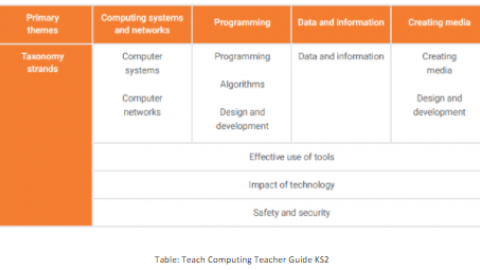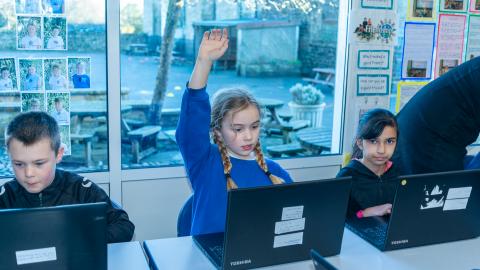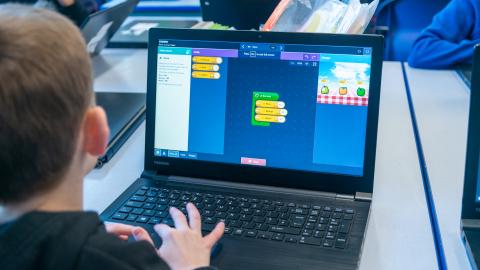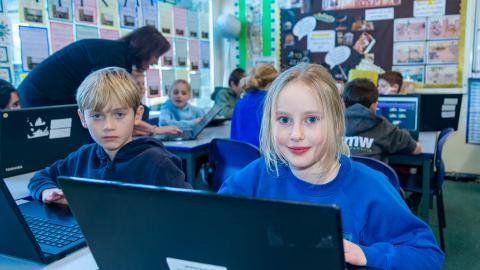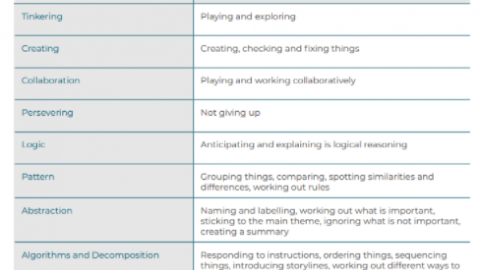|
COMPUTING |
|
Key person responsible - J Sanderson |
|
We want to lead our children’s learning with concepts; we want to support pupils in the acquisition of knowledge, using key concepts, terms, and vocabulary, providing opportunities to build a shared and consistent understanding. We want our children to first unpack complex terms and ideas, exploring these ideas in unplugged and familiar contexts, then repack this new understanding into the original concept. Through the provision of activities with different levels of direction, scaffolding, and support that promote active learning, and through the modelling of processes and practices, we want our children to remain engaged and grow a greater sense of independence - relying less on scaffolding, and more on their own knowledge, understanding and application. We want to provide our children with project-based learning activities to afford them the opportunity to apply and consolidate their knowledge and understanding. We want to encourage collaboration to stimulate classroom dialogue, articulation of concepts, and development of shared understanding. As a school, we want to bring abstract concepts to life with real-world, contextual examples. Through the use of unplugged activities, analogies, conceptual storytelling and experiences within pupils' lives, we want to maintain a flexible focus on links with other curriculum subjects. From Early Years through to Year 6, we want our children to access physical computing and making activities that offer play, tinkering, tactile and sensory experiences to enhance learning; combining electronics and programming with arts and crafts for example to give creative, engaging context that enables further exploration and the application of computing concepts. |
|
Key points teaching: The Computing curriculum is divided into 3 main areas:
Online Safety also holds close links with PSHE and will be taught within a mix of discrete lessons and through the teaching of PSHE/Computing. Progression across key stages/across year groups: From Easter 2022, through the Teach Computing Curriculum, all teaching units will be mapped to the National Centre for Computing Education’s (NCCE) taxonomy of ten strands, which ensures that units build on each other from one key stage to the next. Every year group learns through units within the same four themes, which combine the ten strands. This will enable us to use a ‘spiral curriculum’ approach to progress skills and concepts from one year group to the next. Whilst units will be taught within a year group, aside from Programming A and B, they can be taught in any order to suit the curriculum/topic needs for that year. Table: Teach Computing Teacher Guide KS2 EYFS: Whilst the National Curriculum does not stipulate the teaching of Computing at Foundation Stage, ‘Computational Thinking’ is at the heart of all we do. According to the Statutory Framework for EYFS September 2021, we are required to ensure children’s ‘school readiness’ and ‘give them a broad range of knowledge and skills that provide the right foundation for good future progress through school and life’. Computational Thinking is at the core of the computing curriculum and children will only be ready for this subject if we provide them with foundational experiences. The problem solving of Computational Thinking closely aligns with the Characteristics of Effective Learning. By aligning EYFS provision to Computational Thinking, we can ensure effective progression and readiness for KS1 and beyond. |
|
Key points assessment:
|
|
Supporting documentation
|
|
Wider curriculum links – to be reviewed and updated SPR 2 2022
|

